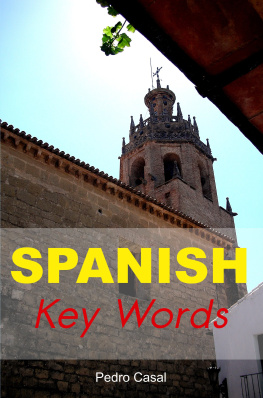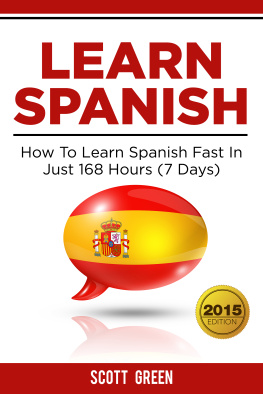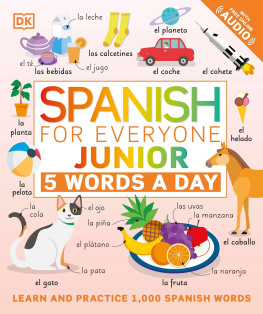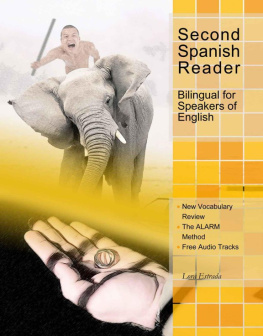Diego Banos - 1001 Top Spanish Words In Context: How To Speak Intermediate Level Spanish In Less Than 28 Days
Here you can read online Diego Banos - 1001 Top Spanish Words In Context: How To Speak Intermediate Level Spanish In Less Than 28 Days full text of the book (entire story) in english for free. Download pdf and epub, get meaning, cover and reviews about this ebook. year: 2018, genre: Detective and thriller. Description of the work, (preface) as well as reviews are available. Best literature library LitArk.com created for fans of good reading and offers a wide selection of genres:
Romance novel
Science fiction
Adventure
Detective
Science
History
Home and family
Prose
Art
Politics
Computer
Non-fiction
Religion
Business
Children
Humor
Choose a favorite category and find really read worthwhile books. Enjoy immersion in the world of imagination, feel the emotions of the characters or learn something new for yourself, make an fascinating discovery.

- Book:1001 Top Spanish Words In Context: How To Speak Intermediate Level Spanish In Less Than 28 Days
- Author:
- Genre:
- Year:2018
- Rating:3 / 5
- Favourites:Add to favourites
- Your mark:
1001 Top Spanish Words In Context: How To Speak Intermediate Level Spanish In Less Than 28 Days: summary, description and annotation
We offer to read an annotation, description, summary or preface (depends on what the author of the book "1001 Top Spanish Words In Context: How To Speak Intermediate Level Spanish In Less Than 28 Days" wrote himself). If you haven't found the necessary information about the book — write in the comments, we will try to find it.
Do you dislike overly grammatical learning material and just want to learn in a natural, fun fashion?
Are you looking for the most sensible, quickest and most reliable way to learn Spanish where the whole method is backed by reliable scientific research?
If you answered yes to at least one of the questions above, then this guide is exactly for you. For those whove despaired of ever learning a foreign language, here, finally, is a book that will make the words stick long-term.
Possibly the most feared challenge to learning Spanish is the challenge of memory; there are just too many words and too many rules to remember. For every new word we learn, we seem to forget two old ones, and as a result, fluency can seem out of reach. That is exactly why 1001 Top Spanish Words In Context was written.
According to Professor Elfrieda H. Hieber from the University of California, Berkeley, The 100 most frequent words account for about 50% of the words in a typical text and the 1000 most frequent words for about 70%.
Therefore it is evident that the first 1000 words of learning a language can provide you with an immense boost on your journey to master the language.
In 1001 Top Spanish Words In Context youll discover:
The 7 most common contexts to INSTANTLY kickstart your learning process (even if you barely know a word at the moment!)
The exact formula to use expressions, proverbs, and sayings like a native speaker
The latest scientific research about language learning combined with a practical guide you will not find on your average online learning website
The single best way to increase your reading and listening comprehension, and enable you to communicate with little or no grammar
How a simple grouping of thematic vocabulary lists can take tremendous fear from getting started and make everything suddenly seem 10x easier
The absolute basic 4 areas of phrases you HAVE to know to communicate in Spanish as quickly as possible (You might be missing out tremendously if you dont know these!)
and much, much more!
Even if you have already tried everything else without success, the beginner friendly and systematic choice of words and phrases are based on both practical experience as a native speaker and the latest scientific research.
Thus, 1001 Top Spanish Words in Context is your shortcut to master the hard beginning in the easiest way possible.
Diego Banos: author's other books
Who wrote 1001 Top Spanish Words In Context: How To Speak Intermediate Level Spanish In Less Than 28 Days? Find out the surname, the name of the author of the book and a list of all author's works by series.









